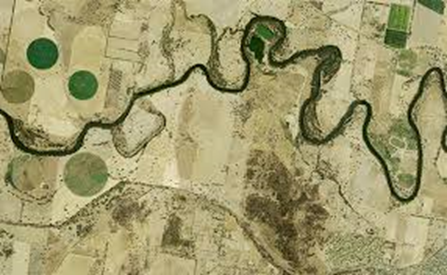New climate laws to have a big impact on agriculture
Luke Williams
11 April 2023, 9:20 PM
 Debate has flared over the Albanese Government's new reforms around carbon credits.
Debate has flared over the Albanese Government's new reforms around carbon credits.Farmers groups have given a mixed response to new laws that will force the nation’s biggest greenhouse gas polluters to reduce their emissions or pay for those emissions by purchasing carbon credits.
The Albanese Government has said the so-called Safeguard Mechanism reforms will help Australia reduce its emissions by 43% below 2005 levels and hit net-zero emissions by 2050.
The laws target the nation’s 215 biggest polluting facilities with agriculture with farmers expected on the frontline for those wanting to purchase or use agricultural land as carbon credits.
National Farmers’ Federation (NFF) Chief Executive Officer Tony Mahar said while agriculture was excluded from safeguard mechanism reforms the laws will, the 215 emitters it captures will be hungry for offsets from farmlands “turbo charge demand for offsets, and with few other options on the table, emitters will look to farmland,” Mr Mahar said.
“Offsets from farmland are the ‘net’ in the government’s ‘net zero’ plan; this will potentially escalate land use conflict, with pressure to turn food and fibre producing land into carbon sinks to counter the emissions from other industries.
“Farmers are serious about responding to climate change, but we have to ensure progress on climate doesn’t come at the cost of food security,” he said.
A spokesperson for the Carbon Farming Foundation (CFF) said the laws “will provide a platform to incentivise decarbonisation for big emitters and should enhance transparency in the use of carbon credits.”
CFF says the policy will create greater certainty for carbon markets and “give Australian farmers greater confidence to participate in it.”

Image: NSW Government.
The CFF says the laws are “absolutely good” for farmers because they will increase demand for high-quality carbon credits, creating opportunity for Australian farmers.
The laws will also have “safeguard pollution triggers,” which means that new gas and coal projects must be assessed against their impact on the environment - and this argue some of its opponents may result in a longer-term deficit in energy sources.
Federal opposition spokesperson Ted O’Brien claims the laws will drive up energy prices and “emissions will be sent offshore”. With Liberal Senator Matt Canavan saying it means the next federal election may well be fought on the price of power bills.
It was the federal Coalition that created the Safeguard Mechanisms in 2016 but set the emissions limits so high that the 215 polluters were actually able to increase their emissions under the laws.
Those 215 polluters account for 30% of Australia’s emissions.
Under the laws, the country’s biggest emitters will be required to reduce their emissions by 5% every year, and if they cannot be avoided, they must offset these emissions.
A spokesperson from CFF told the Narromine Star, “With a more robust Safeguard Mechanism in place, big emitters have a greater drive to obtain carbon credits and will look to the agricultural sector as a supply source."
"Farmers should be cautious of third-party offers to procure offsets or commence a carbon project on their land, as contracts can be complex and not always equitable. There are plenty of experienced third-party project service providers with fair no-lock-in contracts, so we suggest shopping around to find an arrangement that best suits you”.
The spokesperson said that Global demand for climate action has increased dramatically in the past decade with McKinsey forecasting the demand for carbon credits to increase ‘by a factor of 15 or more by 2030 and by a factor of up to 100 by 2050’.
"Voluntary demand is consistently growing, and international markets continue to rise with the EU’s Emissions Trading Scheme recently setting a record high of 100 Euros (~$161AUD) 2 - significantly higher than the current ACCU price of $39.25”.




